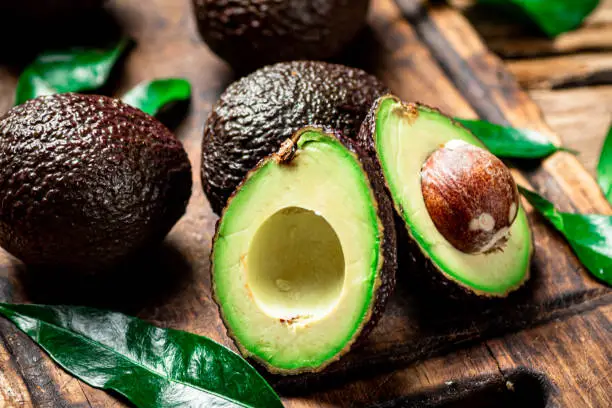Is Avocado a fruit or a vegetable? You’ve probably heard people argue about avocados. Are they fruits? Vegetables? Something else entirely? I get it—it’s confusing. Avocados don’t taste like the fruits we know (like apples or oranges), and they show up more often in savory dishes than sweet ones. But here’s the kicker: Avocados are fruits. Yup, science says so.
So, what’s the deal? Let’s dive deep into this question, break down the science, and explore why avocados are one of nature’s most fascinating foods. By the end of this, you’ll have all the facts to sound like a pro whenever someone brings up the topic.
The Biggest Puzzle – Is Avocado A Fruit Or A Vegetable
Avocado is a nutrition-packed superfood. Health experts call it a nutritional powerhouse, with healthy fats, fiber, vitamins, and minerals. Let it be our heart health and effective weight management, Avocado has a wide array of health benefits. And mainly because of its versatile use in culinary, confusion arises, whether it’s a fruit or a vegetable.
But before jumping to the conclusion, lets see what is a fruit and what are vegetables botanically.
What Makes Something a Fruit?
Let’s start with the basics. What exactly is a fruit? Botanically speaking, fruits are the part of a plant that develops from a flower and contains seeds. It’s kind of like a little house for the plant’s babies (the seeds). When a flower gets pollinated, it transforms into a fruit, which protects the seeds and helps the plant reproduce.
Some common examples of fruits include:
- Apples
- Peaches
- Tomatoes (yes, really)
- Cucumbers
Fruits come in all shapes, sizes, and flavors. Some are sweet, like mangoes. Others, like lemons, are sour. And some—like avocados—are creamy and mild. The one thing they all have in common? Seeds. If it’s got seeds, it’s a fruit.
What About Vegetables?
Vegetables are a whole different story. They’re any other edible part of a plant, like the roots, stems, or leaves. Think of carrots, celery, or spinach. These parts don’t help with reproduction—they’re just there to keep the plant alive.
So, while fruits are all about seeds and flowers, vegetables are the “support system” of the plant. They’re like the arms and legs, while fruits are more like the next generation.
Is Avocado A Fruit or A Vegetable?

To decide whether Avocado is a fruit or a vegetable, have a look at the anatomy of Avocado in the above image. What do you actually see? I can see a large brown-colored seed surrounded by thick, pulpy, and creamy flesh, with a protected outer layer that looks like leathery skin. This outer layer is called “Pericarp”.
So, this picturization perfectly matches the botanical description of a fruit. So, is avocado a fruit? Yes! Botany classifies avocados as a fruit with a large seed with creamy pulp enclosed. Most of the time it is misclassified as a Vegetable, due to its wide culinary usage. And also, for its not so sweet like taste like other fruits.
Not just the Avocados, there are many other fruits that are often mis-classified and mistaken as vegetables in our daily lives. This is majorly due to their appearance and the way they are used in cooking.
Further Classification of Avocado As A Fruit
There are different classifications in fruits too, such as Drupes, Pomes, Berries, etc. Avocado, which is a fruit scientifically, falls under the category of Berries. Wait, what? A berry? Yep. Berries are fruits that have a fleshy outer layer and contain one or more seeds inside. Other examples of berries include bananas, grapes, and even eggplants. Wild, right?
Some perfect examples of berries are strawberries, blueberries, raspberries, and blackberries. Another category of fruit that comes often in the argument of Avocados is Drupes, also called Stone Fruits. General examples of drupes are cherries, peaches, and plums.
Although drupes and berries can be easily confused, the main difference lies in their outer layer and seeds. Berries typically consist of one or more seeds and a fleshy endocarp, while drupes have a tough endocarp enclosing a single seed.
Despite the arguments that whether Avocado is a fruit or a vegetable, is classified as a berry or a drupe, we have to remember the point that it’s a superfood. And its nature’s way of providing us with a delicious and nutritious product for our consumption. Have it in a salad, or make it a toast, Avocado never fails to surprise us with its unique taste. So, enjoy one every day!
Why Do People Think Avocados Are Vegetables?
The confusion comes from how we use avocados. Most fruits are sweet, so we think of them as dessert foods or snacks. But avocados? They’re savory. We spread them on toast, mash them into guacamole, or slice them for salads. That savory flavor makes people assume they’re vegetables. But botanically speaking, they’re 100% fruit.
